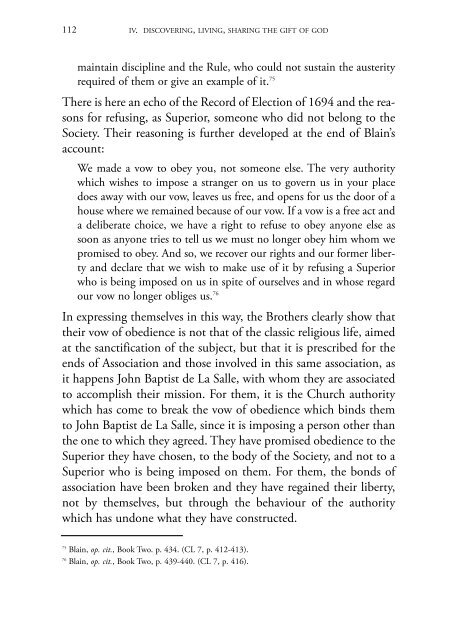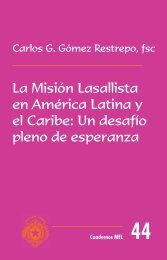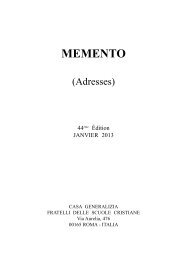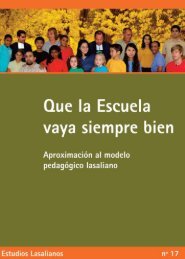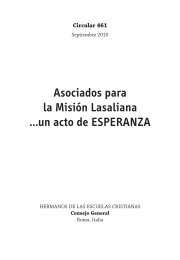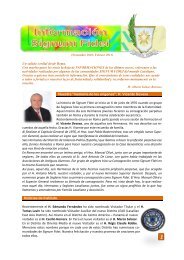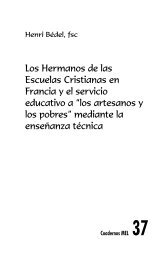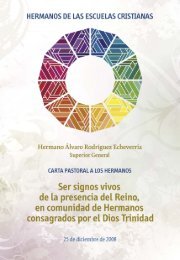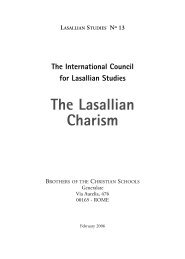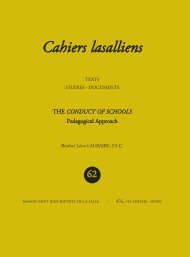I. Charism - La Salle.org
I. Charism - La Salle.org
I. Charism - La Salle.org
You also want an ePaper? Increase the reach of your titles
YUMPU automatically turns print PDFs into web optimized ePapers that Google loves.
112<br />
IV. DISCOVERING, LIVING, SHARING THE GIFT OF GOD<br />
maintain discipline and the Rule, who could not sustain the austerity<br />
required of them or give an example of it. 75<br />
There is here an echo of the Record of Election of 1694 and the reasons<br />
for refusing, as Superior, someone who did not belong to the<br />
Society. Their reasoning is further developed at the end of Blain’s<br />
account:<br />
We made a vow to obey you, not someone else. The very authority<br />
which wishes to impose a stranger on us to govern us in your place<br />
does away with our vow, leaves us free, and opens for us the door of a<br />
house where we remained because of our vow. If a vow is a free act and<br />
a deliberate choice, we have a right to refuse to obey anyone else as<br />
soon as anyone tries to tell us we must no longer obey him whom we<br />
promised to obey. And so, we recover our rights and our former liberty<br />
and declare that we wish to make use of it by refusing a Superior<br />
who is being imposed on us in spite of ourselves and in whose regard<br />
our vow no longer obliges us. 76<br />
In expressing themselves in this way, the Brothers clearly show that<br />
their vow of obedience is not that of the classic religious life, aimed<br />
at the sanctification of the subject, but that it is prescribed for the<br />
ends of Association and those involved in this same association, as<br />
it happens John Baptist de <strong>La</strong> <strong>Salle</strong>, with whom they are associated<br />
to accomplish their mission. For them, it is the Church authority<br />
which has come to break the vow of obedience which binds them<br />
to John Baptist de <strong>La</strong> <strong>Salle</strong>, since it is imposing a person other than<br />
the one to which they agreed. They have promised obedience to the<br />
Superior they have chosen, to the body of the Society, and not to a<br />
Superior who is being imposed on them. For them, the bonds of<br />
association have been broken and they have regained their liberty,<br />
not by themselves, but through the behaviour of the authority<br />
which has undone what they have constructed.<br />
75<br />
Blain, op. cit., Book Two. p. 434. (CL 7, p. 412-413).<br />
76<br />
Blain, op. cit., Book Two, p. 439-440. (CL 7, p. 416).


